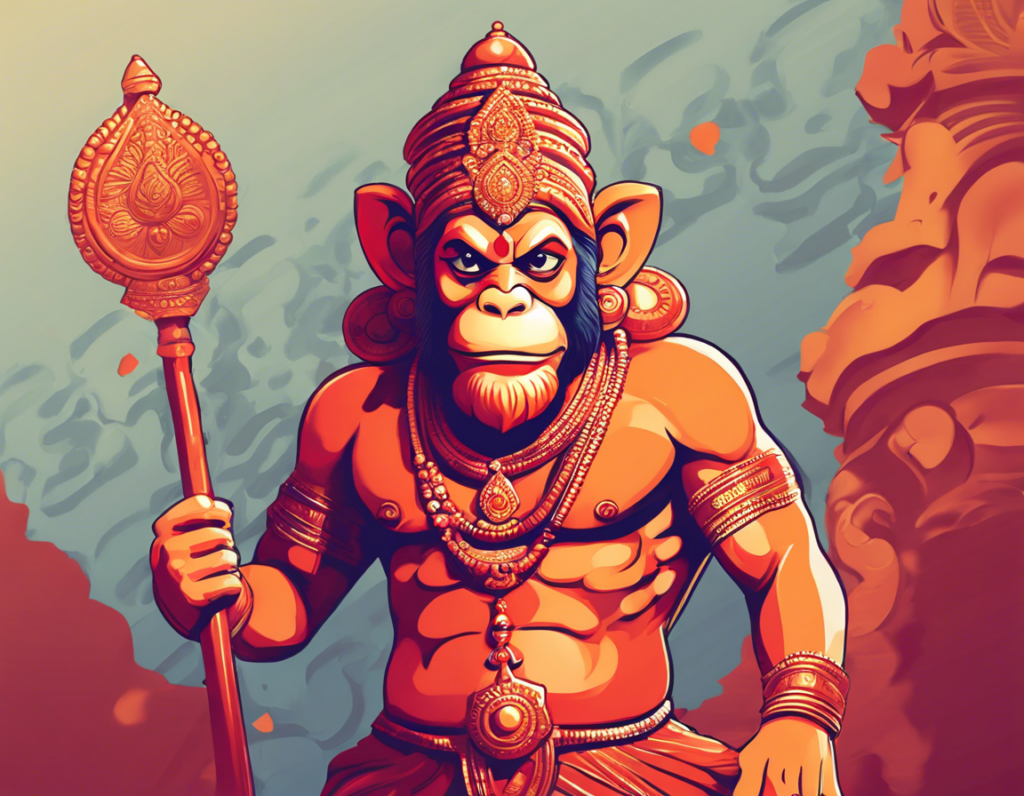Introduction
In the Hindu calendar, Hanuman Jayanti is celebrated to commemorate the birth of Lord Hanuman. This auspicious day falls on the 15th day of the Shukla Paksha during the month of Chaitra. Lord Hanuman, also known as Bajrangbali, is a revered deity in Hinduism known for his unwavering devotion to Lord Rama and his unparalleled strength and valor. Hanuman Jayanti is observed with great reverence and devotion by millions of Hindus around the world.
The Significance of Hanuman Jayanti
Hanuman Jayanti holds immense significance in Hindu mythology and is considered an auspicious day to seek the blessings of Lord Hanuman. Devotees believe that worshipping Lord Hanuman on this day can help alleviate their troubles, grant them strength and courage, and protect them from evil forces. Hanuman is revered for his selfless service, loyalty, and dedication, making him an ideal symbol of devotion and righteousness.
The Rituals and Celebrations
On Hanuman Jayanti, devotees wake up early in the morning, take a bath, and visit Hanuman temples to offer prayers and seek blessings. Special prayer services and bhajans are organized in temples dedicated to Lord Hanuman. Devotees also recite Hanuman Chalisa, a sacred hymn that praises the virtues and valor of Lord Hanuman. Some devotees observe fasts on this day and offer special prayers to seek the blessings of Hanuman for protection and strength.
Hanuman Chalisa
Hanuman Chalisa is a 40-verse hymn composed by the poet-saint Tulsidas in the Awadhi language, dedicated to Lord Hanuman. It is widely recited by devotees to seek the blessings of Hanuman and is believed to bring peace, prosperity, and protection from negative energies. Reciting Hanuman Chalisa with devotion is considered auspicious on Hanuman Jayanti and is believed to please Lord Hanuman.
The Legend of Lord Hanuman
Lord Hanuman is a central character in the Indian epic Ramayana and is known for his unwavering devotion to Lord Rama. He played a crucial role in the rescue of Sita, the wife of Lord Rama, from the demon king Ravana. Hanuman is also known for his role in the battle of Lanka and for carrying the Sanjeevani herb to revive Lakshmana, Lord Rama’s brother. His selfless service, loyalty, and devotion have made him a beloved deity among Hindus.
Benefits of Worshipping Lord Hanuman
Devotees believe that worshipping Lord Hanuman can bestow numerous benefits, including:
- Protection: Lord Hanuman is believed to protect his devotees from harm and negative energies.
- Strength and Courage: Worshipping Hanuman is said to impart strength, courage, and determination to overcome obstacles.
- Wisdom: Lord Hanuman is revered as a symbol of wisdom and knowledge, and seeking his blessings is believed to enhance one’s intellect.
- Devotion: By worshipping Hanuman, devotees can cultivate devotion, humility, and selflessness.
Conclusion
Hanuman Jayanti is a sacred occasion that celebrates the birth of Lord Hanuman, a revered deity in Hinduism known for his devotion, strength, and selflessness. On this auspicious day, devotees worship Hanuman, recite sacred hymns, and seek his blessings for protection, strength, and courage. The celebration of Hanuman Jayanti serves as a reminder of the virtues of devotion, loyalty, and righteousness that Lord Hanuman embodies.
Frequently Asked Questions (FAQs)
-
What is the significance of Hanuman Jayanti?
Hanuman Jayanti commemorates the birth of Lord Hanuman and is considered an auspicious day to seek his blessings for protection, strength, and courage. -
How is Hanuman Jayanti celebrated?
Devotees wake up early, visit Hanuman temples, offer prayers, recite Hanuman Chalisa, and participate in special prayer services and bhajans. -
What is the importance of reciting Hanuman Chalisa on Hanuman Jayanti?
Reciting Hanuman Chalisa is believed to please Lord Hanuman and bring peace, prosperity, and protection from negative energies. -
What are the benefits of worshipping Lord Hanuman?
Worshipping Lord Hanuman can bestow benefits such as protection from harm, strength, courage, wisdom, and the cultivation of devotion. -
Who was Hanuman in Hindu mythology?
Hanuman, also known as Bajrangbali, is a central character in the Indian epic Ramayana known for his devotion to Lord Rama, courage, and selfless service. -
Can non-Hindus celebrate Hanuman Jayanti?
Yes, people from all walks of life can participate in the celebrations of Hanuman Jayanti and seek the blessings of Lord Hanuman. -
Are there any specific rituals associated with Hanuman Jayanti fasts?
Devotees often observe fasts on Hanuman Jayanti and consume only vegetarian food. Some may also abstain from consuming onion and garlic during the fast. -
What are some other ways to honor Lord Hanuman on Hanuman Jayanti?
Apart from visiting temples and reciting prayers, devotees can engage in acts of charity, volunteer work, and helping those in need to honor Lord Hanuman on Hanuman Jayanti. -
Can Hanuman Jayanti be celebrated at home?
Yes, devotees can celebrate Hanuman Jayanti at home by setting up a puja altar, offering prayers, reciting Hanuman Chalisa, and immersing themselves in devotion to Lord Hanuman. -
What is the best time to visit Hanuman temples on Hanuman Jayanti?
Devotees often visit Hanuman temples early in the morning, during the auspicious hours of sunrise, to offer prayers and seek the blessings of Lord Hanuman.
